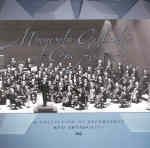Following the success of large, archival boxed sets from America’s so-called “big five” orchestras (New York, Boston, Philadelphia, Chicago, and Cleveland), the Minnesota Orchestra unveils an imposing 12-disc anthology to celebrate its first 100 years. It encompasses rare commercial recordings and unreleased live performances featuring virtually all of the orchestra’s music directors, along with a 144-page booklet jam-packed with contextual notes, reminiscences from musicians, long-unseen photos, and a selective (though regrettably incomplete) discography.
The collection impresses on many levels. Any notion that the orchestra’s “second-tier” status indicates less than world-class (i.e., “big five”) execution, instrumental sheen, and stylistic flexibility is easily disproved by the items stemming from the 1970s onward (discs 7-12). Listen to the rounded, golden climaxes of Bruckner’s Third Symphony in its revised 1889 version led by ace Brucknerite Stanislaw Skrowaczewski, or notice the fetching local color and lithe ensemble that distinguish Edo de Waart’s Mahler Fourth (superior to his two commercial versions, and capped by Susan Graham’s lovely singing in the fourth movement). If Leonard Slatkin’s Shostakovich Fourteenth soft-pedals the music’s morbid bite and stabbing accents, Elgar’s Enigma Variations boasts tellingly judged mood contrasts and tempo relationships from section to section under Neville Marriner’s inspired stewardship.
Among the notable guest-conductor choices are Valery Gergiev’s shimmering account of Liadov’s Enchanted Lake and a measured but not-too-broad Beethoven Pastorale Symphony that preserves Klaus Tennstedt’s interpretation of a work he otherwise didn’t record. The Collection’s final disc admirably represents the orchestra’s current music director Osmo Vanskä (Grieg’s Peer Gynt–what an exciting, swashbuckling In The Hall Of The Mountain King!) and his predecessor Eiji Oue (Tchaikovsky’s Fifth Symphony).
Seasoned collectors, however, may find Discs 1 through 6 more interesting. Granted, sonic and editorial limitations reduce the seven selections culled from the orchestra’s first recorded encounters (with Henri Verbrugghen conducting) to curio status, especially a 1928 Berlioz Roman Carnaval Overture with its rag-tag balances and weird cuts. Improved technology and an ambitious recording agenda for RCA Victor coincided with Eugene Ormandy’s music directorship of the Minneapolis Symphony (as the orchestra was known until its 1968 name change to the Minnesota Orchestra). A generous cross-section of the orchestra’s mid-1930s sessions fills nearly two CDs, starting with an over-the-top Enescu Roumanian Rhapsody No. 1 that frankly wipes the floor with Ormandy’s better-known stereo Philadelphia version. The recorded premiere of Kodály’s Háry János Suite is no less urgent and exciting, and if you want the fastest Schumann Fourth in the west, Ormandy/Minneapolis may well be it.
From Dimitri Mitropoulos’ tenure we have edgy, raw-nerve readings of Mendelssohn’s Scottish Symphony, Bach’s C major Toccata, Adagio & Fugue (orchestrated by Leo Weiner), and Dvorák’s Scherzo capriccioso. The conductor teams up with his fellow Busoni pupil, the legendary pianist Egon Petri, for their mentor’s recasting of Liszt’s Spanish Rhapsody for piano and orchestra. This recording has been reissued before, but never in such good sound (thanks to ace transfer agent Seth Winner).
Discs 4 and 5 largely derive from 1955-58 concerts taped for delayed broadcast, and the vivid impact of the close-up mono engineering sounds nearly as vibrant today as the orchestra’s memorable studio recordings for the Mercury label during that time. Much of the responsibility stems from Antal Dorati’s fastidious ear for detail, as the Weber Oberon Overture’s laughing woodwinds and vivacious rhythmic interplay throughout all three movements of Debussy’s La Mer prove. Pianophiles will find Ernst von Dohnanyi’s fleet, no-holds-barred treatment of Mozart’s K. 503 C major concerto fascinating despite myriad finger fluffs, hopelessly unstylish cadenzas, and some rough ensemble entrances. Three orchestral suites by Sessions, Casella, and Roussel, plus the “Gay Day” scherzo from Harald Saeverud’s “Minnesota Symphony” represent Dorati’s allegiance to challenging, unhackneyed, yet accessible modern repertoire.
Collectors also will welcome a rare instance of Aaron Copland conducting non-Copland (Chavez’s Sinfonía India) and a slightly shaky but authoritative Stravinsky Fireworks with the aged composer at the helm. And although the catalogs hardly lack live versions of David Oistrakh in Beethoven’s Violin Concerto, he’s on tip-top form (and more than merely accompanied by Skrowaczewski) in a 1965 performance well worth inclusion. In sum, this carefully curated collection offers something for everyone and will satisfy specialist collectors and general music lovers alike. Most of all, it does one of America’s finest and most enterprising orchestras proud.
































